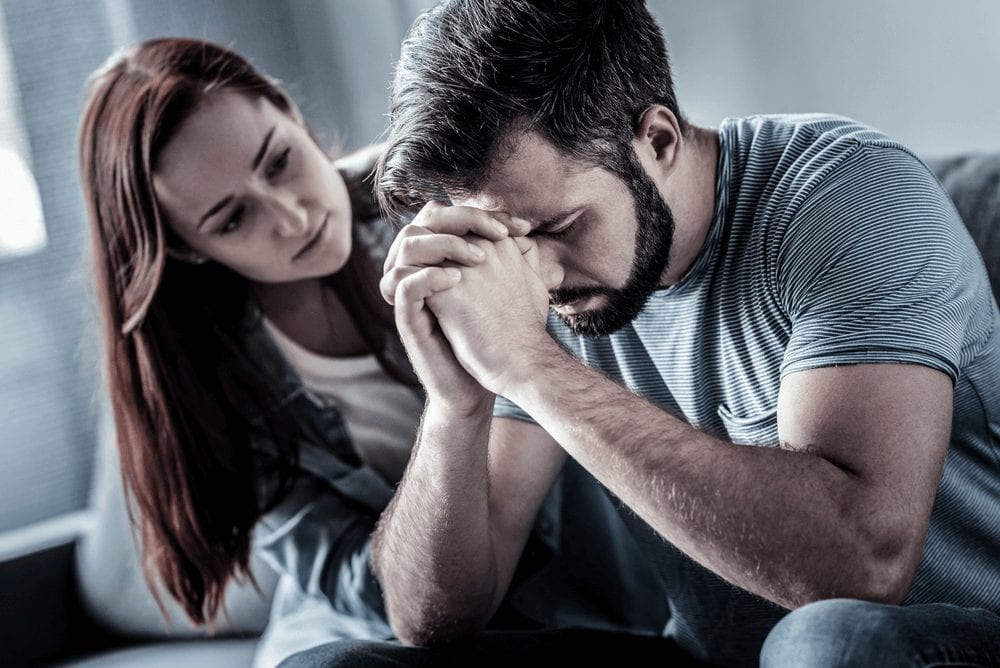Coronavirus: Is it safe to see your mother this Mother’s Day?
Prior to the global coronavirus outbreak, many will have likely been planning on spending Mother’s Day surrounded by their loved ones.
However, with health officials urging members of the public to avoid any unnecessary travel or social contact, a large number of people will be commemorating the occasion apart from their relatives.
On Monday 16 March, the British government issued guidance on social distancing, explaining that it is a measure “we should all be taking” in order to “reduce the transmission of coronavirus”.
Download the new Independent Premium app
Sharing the full story, not just the headlines
Social distancing, Public Health England explains, involves doing things such as avoiding coming into contact with individuals who are displaying symptoms of coronavirus, avoiding “non-essential use of public transport”, refraining from attending large gatherings and not partaking in meet-ups with friends or family.
In light of this guidance, is it safe to see your mother or family members on Mother’s Day if you live apart?
Is it safe to see your mother this Mother’s Day?
According to the government’s guidance, as dictated by Public Health England, it is “strongly advised” that members of the public “significantly limit” the time they spend sharing face-to-face contact with friends and relatives.
This means that if you do not live with your mother, it is suggested that you should not venture out to see them on Mother’s Day, whether at their home or out and about.
This is especially important for individuals who may be particularly vulnerable if they were to contract Covid-19.
These people include those aged 70 and older, those with underlying a health condition such as a chronic respiratory issue, those who have a weakened immune system from undergoing chemotherapy and those who are pregnant.
“We are advising those who are at increased risk of severe illness from coronavirus (COVID-19) to be particularly stringent in following social distancing measures,” the government said.
1/20
Top: Nabi Younes market, Mosul
Bottom: Charles Bridge, Prague
Reuters
2/20 Grand Mosque, Mecca
Reuters
3/20 Sagrada Familia, Barcelona
Reuters
4/20 Nabi Younes market, Mosul
Reuters
5/20 Basra Grand Mosque, Iraq
Reuters
6/20 Charles Bridge, Prague
Reuters
7/20 Taj Mahal hotel, India
Reuters
8/20 Dubai Mall, UAE
Reuters
9/20 Beirut March, Lebanon
Reuters
10/20 Gateway of India, Mumbai
Reuters
11/20 Cairo University, Egypt
Reuters
12/20 Amman Citadel, Jordan
Reuters
13/20 Church of the Nativity, Bethlehem
Reuters
14/20 Beirut March, Lebanon
Reuters
15/20 Cairo, Egypt
Reuters
16/20 Cairo University, Egypt
Reuters
17/20 Victoria Memorial, India
Reuters
18/20 Amman Citadel, Jordan
Reuters
19/20 Amman Citadel, Jordan
Reuters
20/20 Sidon, Lebanon
Reuters
1/20
Top: Nabi Younes market, Mosul
Bottom: Charles Bridge, Prague
Reuters
2/20 Grand Mosque, Mecca
Reuters
3/20 Sagrada Familia, Barcelona
Reuters
4/20 Nabi Younes market, Mosul
Reuters
5/20 Basra Grand Mosque, Iraq
Reuters
6/20 Charles Bridge, Prague
Reuters
7/20 Taj Mahal hotel, India
Reuters
8/20 Dubai Mall, UAE
Reuters
9/20 Beirut March, Lebanon
Reuters
10/20 Gateway of India, Mumbai
Reuters
11/20 Cairo University, Egypt
Reuters
12/20 Amman Citadel, Jordan
Reuters
13/20 Church of the Nativity, Bethlehem
Reuters
14/20 Beirut March, Lebanon
Reuters
15/20 Cairo, Egypt
Reuters
16/20 Cairo University, Egypt
Reuters
17/20 Victoria Memorial, India
Reuters
18/20 Amman Citadel, Jordan
Reuters
19/20 Amman Citadel, Jordan
Reuters
20/20 Sidon, Lebanon
Reuters
Furthermore, there are certain individuals who fall into the category of people who would be at an even higher risk of severe illness if they were to become infected by the coronavirus, the guidance outlined.
These people include patients with cancer who are currently undergoing chemotherapy or radiotherapy, people with cancers of the blood or bone marrow, individuals with severe chest conditions and those who have severe diseases of body systems, such as kidney disease.
“If you are in this category, next week the NHS in England will directly contact you with advice the more stringent measures you should take in order to keep yourself and others safe,” the government said.
Earlier this week, the government stated that people with the “most serious health conditions” must avoid almost all social contact for 12 weeks from this upcoming weekend.
If you cannot be with your mother this Mother’s Day, what can you do?
Caroline Abrahams, charity director of Age UK, says we need to think “creatively” about how we can stay in contact with our loved ones while we are apart.
“Whatever the method, staying in touch over the coming weeks and months will be vital,” Abrahams said.
“Video calling can be a good way to do this but of course it may not work for everyone. The choice of technology must be as user-friendly as possible so the simpler solutions are often the best. Something integrated like a video call app on a smart phone, tablet or a laptop with a built in camera, for example will often be more straightforward. Older people may also prefer physical interfaces like a mouse rather than a touch screen or track pad.”
Abrahams added that for elderly people, using “physical interfaces” such as a mouse, rather than a touch screen, may be preferable for them.
“To protect people’s privacy it will be important to ensure that any new devices are secure and not likely to be hacked, and that anyone using a new device has access to ongoing support to help them learn how to use it and deal with any issues or problems,” she stated.
“What’s crucial is finding ways to keep people informed and in contact in a way which is low risk and ensures older and more vulnerable people are protected. As these events unfold and we know more about what’s to come the advice may well change, so it’s important to keep up to date with reliable sources of information such as the NHS or Age UK website.”
Rachel Baylis, from Dorset, had planned on spending Mother’s Day with her mother, father, sister, Nan and Grandad.
While she and her family typically spend Mother’s Day enjoying a Sunday roast, she tells The Independent that this year that will not be possible due to her elderly grandparents.
“We are hoping for a sunny day so we can sit in the garden with them at a suitable distance apart,” she said.
“That failing, we will take an umbrella and sit outside their window and have a conversation through the window!”
The Royal Mail states that it is still safe to send parcels, in accordance with advice given by Public Health England.
Therefore, even if you cannot be with your mother on Mother’s Day, you can still send her a present and a card to mark her special day.
If you have any coronavirus symptoms or have recently travelled to an affected area, contact the NHS helpline on 111 and do not visit your GP or hospital.




